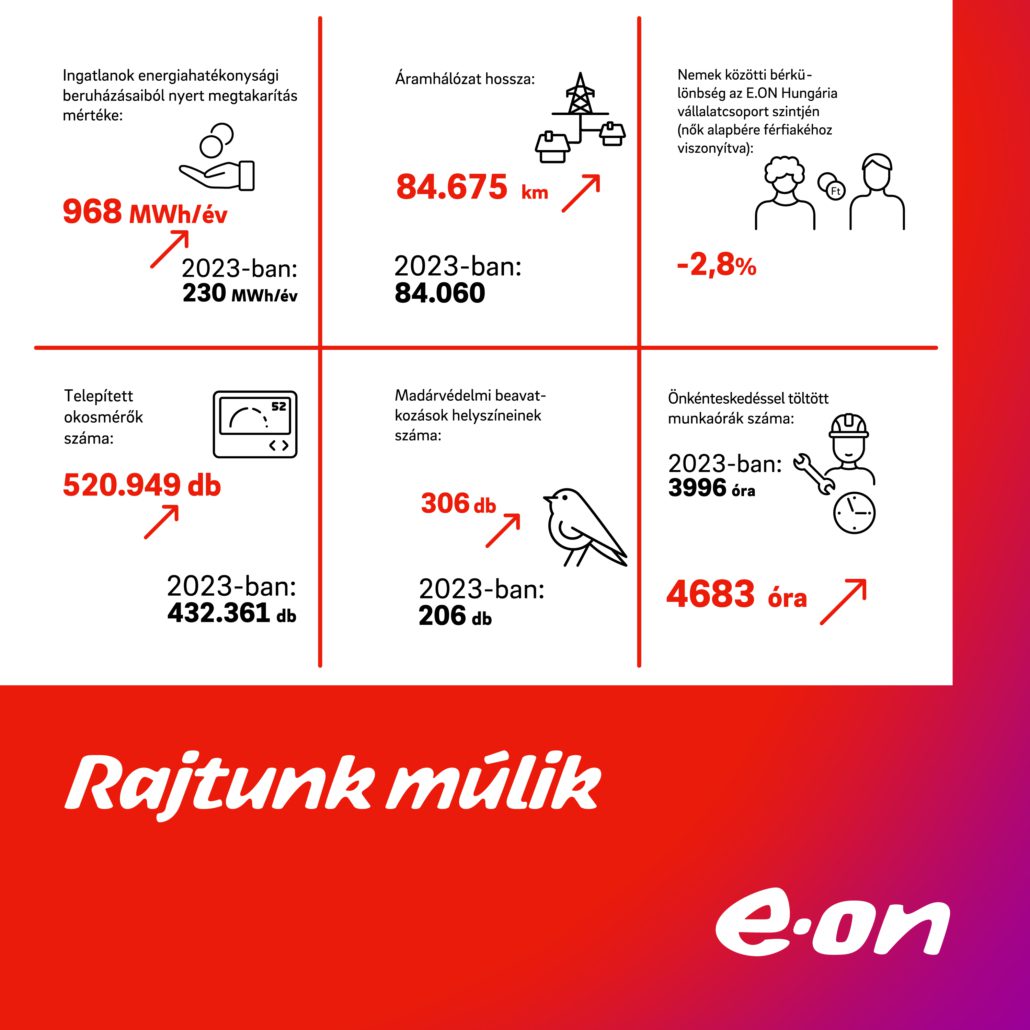E.ON facilities powered exclusively by renewables
Last year, the E.ON Hungary Group operated 70 sites entirely on renewable electricity and the company’s total CO2 emissions fell by 84 per cent compared to 2019 levels.
The E.ON Hungary Group has taken a major step forward in reducing greenhouse gas emissions in 2024. Since January of last year, around 70 of the company’s sites have been operating on 100% renewable electricity, thus reducing the firm’s annual CO2 emissions by more than 2,000 tonnes.
The emissions output of E.ON’s solar power plants increased by 30 per cent, and the company plans to install more solar facilities and invest even more into green energy in the near future. Total CO2 emissions related to the company’s operations decreased by 84 per cent compared to those for 2019.
Last year, E.ON spent more than HUF 160 billion on developing its electricity networks. By building new substations and energy storage facilities, it facilitated the connection of renewable energy sources to the grid. The smart grid roll-out also continued: 87,000 smart meters were installed in 2024, bringing the total number of those in operation to more than 520,000 by the end of the year.
The establishment of E.ON’s new headquarters is an important milestone in terms of the company’s energy efficiency. The new office building in Budapest has been awarded a BREEAM Excellent certification. E.ON has also carried out energy efficiency investments at its other properties, which have resulted in achievement of more than four times the previous year’s energy savings in 2024.
Last year, the company’s waste recycling rate was 96.9 per cent, and the proportion of domestic suppliers remained high at 96.5 per cent. The former figure provides impetus to circular economy development, while the latter is beneficial from an environmental perspective as well as demonstrating support for local business. The company implemented an HUF 235m in bird conservation measures at more than 300 locations throughout Hungary.




